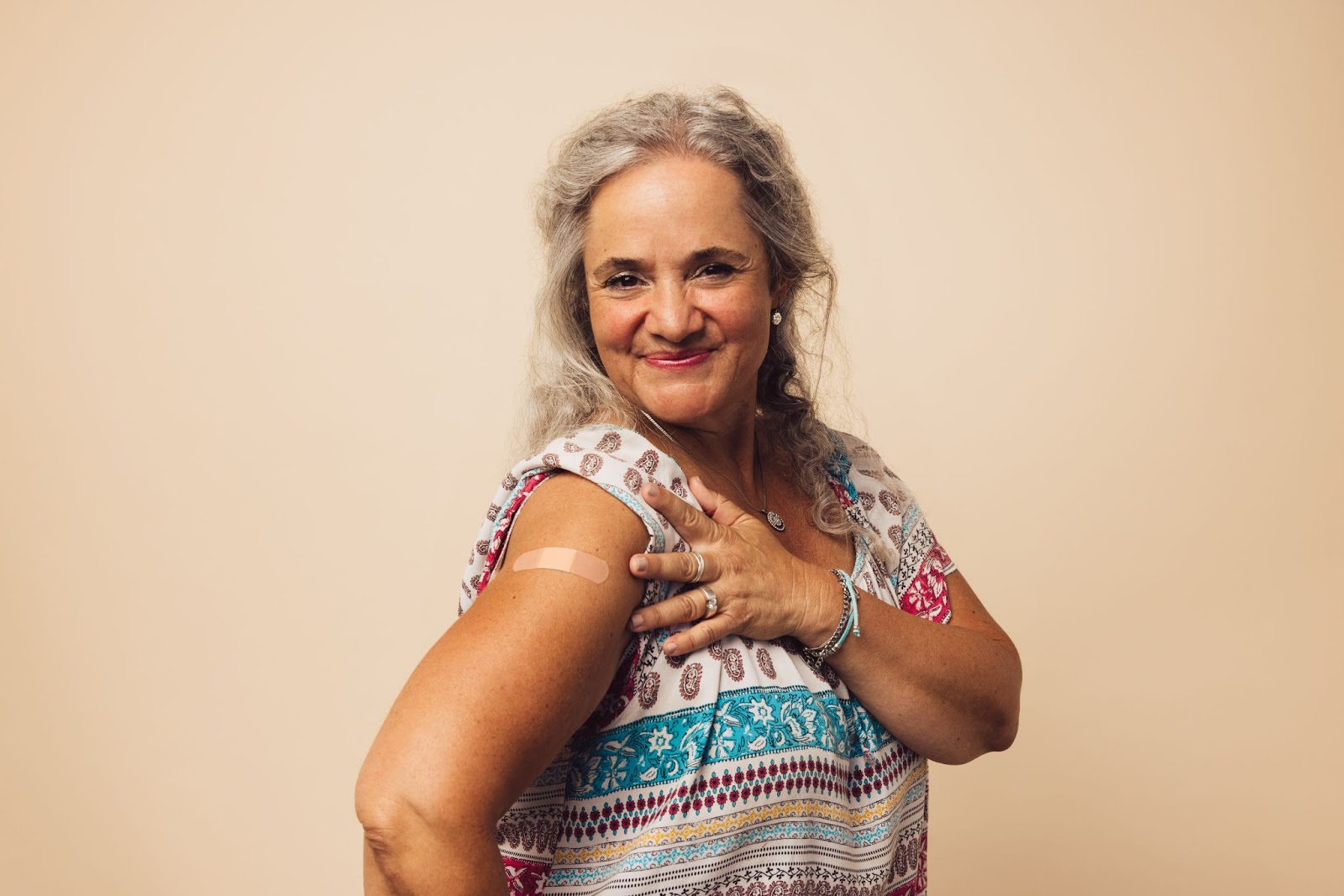
Vaccine Expert Answers some of Your Concerns
As of the start of this week more than three million Australians have been given the jab. Have you booked a time yet?
Your COVID comments continue unabated, with questions such as ‘Can I have a choice of vaccine?’ and some misunderstandings about the science.
Using reliable sources I have sought to address your points in ways which do not contribute to confusion and fear but boost clarity and confidence.
This week, I thank a contact of mine who has intimate knowledge of the COVID vaccines for contributing the ‘our expert’ comments below. They must remain nameless because to clear their insights, valuable though they be, via the official channels would be too time-consuming.
Oliver from NSW:
Seniors with previous conditions (eg heart complaints, high blood pressure readings, sugar diabetes) should be allowed to opt for the Pfizer vaccine, and not be forced to take the AstraZeneca. Would it be possible for this organisation (FiftyUp) to make representation to the authorities for this dispensation?
Oliver, we don’t have to make representations. You may recall it was a very few adverse events with seniors in Norway using the Pfizer vaccine not AstraZeneca which first raised concerns. The best advice is to speak to your GP and take note of what our own Therapeutic Goods Administration has to say.
The TGA therefore has concluded that there is no specific risk of vaccination with the Pfizer-BioNTech COVID-19 vaccine in elderly patients. Elderly patients can receive this vaccine and there is no cap on the upper age limit.
Our Expert says:
If you have relevant medical issues - history of thrombotic events with thrombocytopenia particularly cerebral venous sinus thrombosis, or a history of Heparin Induced thrombocytopenia, your health care practitioner would probably consider that you should have the Pfizer vaccine rather than the AstraZeneca vaccine. Many other medical conditions were covered in the population of subjects who took part in the clinical trials and so would not necessarily preclude a person from being ineligible for either of the vaccines. It will depend on what condition and how severe it is.

Coral from NSW:
Anyway I just read some info yesterday regarding the vaccines and the age criteria. I am 65 years old and am in the AstraZeneca group but I won’t be having that jab. My body, my choice but on reading some info yesterday about my having the choice of the Pfizer vaccine instead it says not an option for me. The document I read also stated the AstraZeneca is not as effective as the Pfizer vaccine as well as there was a cost difference between the two vaccines. The AstraZeneca being the cheaper option... Are we putting people or money first? Why are we not getting the choice of vaccine? I’m still not confident enough to take the jab.
Coral without knowing what ‘info’ you were reading and how reliable it is I can only direct you to the federal government’s site. In short there’s a process largely based on age and other circumstances and both vaccines are safe.
If you demand a choice it may take longer. Cost is not a factor but availability and getting hold of a range of vaccines is.
The Dept of Health says:
Access to any vaccine approved for use in Australia has been prioritised, ensuring those at greatest risk are vaccinated first. Specific vaccines will be administered based on availability and clinical guidance on appropriate vaccines for people.
Our Expert:
It is true that the Pfizer vaccine is not being offered to anyone in the over-50 population. So as a 65-year-old, the person is not currently eligible for the Pfizer vaccine (specific medical conditions above notwithstanding). As it currently stands the person would have to wait until all those eligible for the Pfizer vaccine have had the opportunity to have one. Remember currently there have been just less than approx 1 million doses of Pfizer Vaccine available in the country, with those being used on priority groups under 50. The Moderna vaccine being ordered will ensure the govt will be able to try to meet its target of offering everyone under 50 an mRNA vaccine by the end of the year. So your correspondent will likely have to wait it out until later in the year and see if they can get one of those. Bear in mind though that CSL will be churning out 1 million doses a week until the end of the year too so there will be quite a lot of vaccine around.
Regarding cost differences: Yes the AZ vaccine is cheaper than the Pfizer vaccine. The main reason for this is that AstraZeneca are providing the vaccine at cost during the pandemic. I’ll say that again….AstraZeneca will be making no profit from this vaccine throughout the period of the pandemic. This was agreed with the University of Oxford from the start as this is an effort to vaccinate the world without profit arguments getting in the way. The manufacturing technology for the AZ vaccine is complicated but less complex and at the start less risky than that of the Pfizer vaccine. However Pfizer are also making a profit from their vaccine. They have recently agreed to provide it to low-income countries at cost, however they are expected to make multiple billions of dollars in profit dining the pandemic. There are also the distribution costs which are much more expensive for the Pfizer due to the low temperature at which it has to be kept during transportation.
Martyn from NSW commented:
I agree with the comment “this is a trial drug…We are discussing the introduction of a man-made substance into the human body. The possible effects are unknown, short or long term, because there has not been a stringent trials regime. We have already seen blood clot issues in some recipients early on which, in my opinion is an unacceptable risk. But, my primary concern would be the long term possibilities of any adverse effects. Remember ‘Thalidomide’?
Snopes is an American fact-checking website which answers this concern I hope once and for all.
What's True
Thalidomide was a “miracle drug” commonly prescribed in the 1950s to treat an assortment of ailments, including nausea in pregnant women. The therapeutic was not rigorously tested in large human populations and was pulled from the market less than a decade after its introduction because it caused malformations in newborns.What's False
Thalidomide was not “rapidly approved” using comparable approval requirements necessary in 2020 for the COVID-19 vaccine. Furthermore, thalidomide is not a vaccine, and does not provide a possible case study for long-term safety and efficacy concerns related to the two-dose coronavirus immunization.
Geoff from NSW replied to Martyn:
You do realise this is a pandemic which continues to kill millions of people outside our very safe bubble here in Australia. Would you have the same opinion if things get as bad here as say India at present. But your choice - don’t get the jab but stay home and don’t put the rest of us at risk!
Wojchiech from VIC commented:
I can't not believe that people are not using their own brain and knowledge? This is a medical experiment. This is not a vaccine but genetic therapy with unknown repercussions which may uncover after years if not immediately. Some people are dying after taking this wonderful jab. If someone is healthy, they do not need this poison cocktail in the body. I can’t believe that people do not use own judgment but believe in everything what media propaganda is telling to them.
Our Expert:
These outcomes (from international tests) show that these vaccines are both very effective vaccines at what they set out to do. This has been supported by quite a number of clinical publications describing the real-world effectiveness of the vaccines in different countries. In all of these studies the vaccines show broadly equivalents and high levels of effectiveness (85% - 90%).
So why are we not getting a choice? Well probably because for the population at most risk of getting serious COVID-19, being hospitalised (and having long lasting after effects) or dying, the AstraZeneca vaccine has been shown to be a very effective and safe vaccine which can be deployed quickly in Australia as it is manufactured locally and can be easily transported around the country to where it is needed. There’s the very rare clotting phenomenon which may or may not be associated with the vaccine which is now being spotted early and treated effectively when it does occur. It will only take one slip-up in quarantine, and we will be in a very different situation, where the risks of COVID-19 massively outweigh the likelihood of a clotting event.
One of your correspondents refer to the vaccines not being tested - short and long term testing etc. all the vaccines have complied with global health authority requirements for testing (non-clinical and clinical safety and efficacy testing) up to this point. It is true that long term safety was not established before the roll-out of the vaccines but the global health authorities are content based on a raging pandemic and assessment of risk. Long term human safety evaluation is ongoing through clinical trial follow-up and real-world safety reporting
Lynn from WA:
My message to doubters: Start thinking about all of our fellow human beings instead of oneself, get your vaccination, as only herd immunity provides us with a chance of fighting this virus.
Herd immunity looks unlikely, but regular vaccination might be the answer, as reported in The Guardian newspaper:
Immunologists and virologists are questioning the ability of populations to ever achieve herd immunity to Covid-19. They say gradually waning immunity to the virus after infection or vaccination, and the impact of variants, mean it is likely annual vaccinations will be required and cases will continue to occur.
Anonymous from QLD commented:
I think that we (my wife and I) should get vaccinated - how do I go about it? I am 70 she is 67.
Given your age, contact your GP or follow up on the details here. It's pretty straightforward.
Any information is general advice, it does not take into account your individual circumstances, objectives, financial situation or needs.

